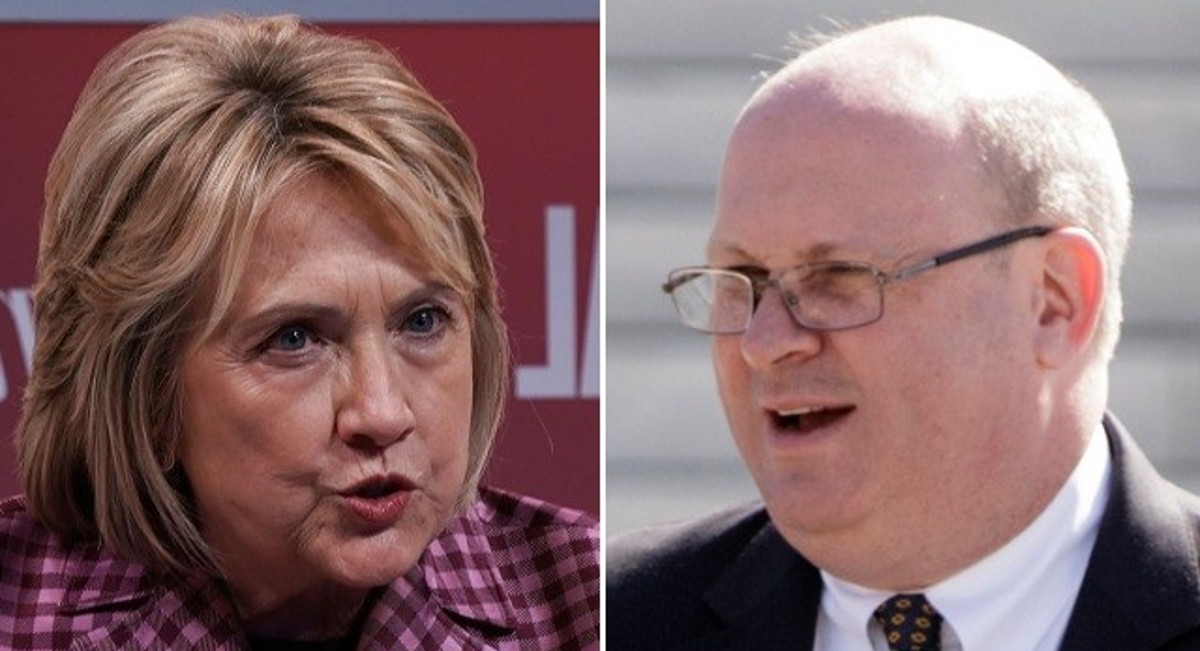OPINION: This article may contain commentary which reflects the author's opinion.
One of the Democratic Party’s top lawyers wrote an article pushing a concept known as “ballot harvesting,” where third-party operatives collect votes and deliver them to polling places, as a way to ensure that Democrats were electorally successful.
The article by Marc Elias, which was posted to a website that is frequented by voting activists, suggested legalizing the practice, currently outlawed in most states, is one of the “four pillars” to Democrat success.
Not only did Elias back the practice, but he also led lawsuits, along with other Democrats against states where ballot harvesting was barred, Just the News reported Monday.
In particular, Elias and Democrats filed suit to have ballot harvesting bans overturned in a pair of battleground states — Arizona and Georgia, though both of those suits were unsuccessful, the laws having been upheld in cases that reached the U.S. Supreme Court.
The outlet noted that the uncovering of Elias’ article comes at a crucial time in one of those states:
As Georgia Secretary of State Brad Raffensperger launches an investigation into an allegation of widespread harvesting in that state’s 2020 elections, attention has been refocused on earlier failed Democrat efforts to make the ballot collection tactic legal and whether rogue elements in the Peach State tried to carry it out despite the ban.
Elias pushed for the legalization of ballot harvesting in a March 2020 article, posting it on Democracy Docket, a self-described “progressive media platform” that he founded.
Called the “Four Pillars to Safeguard Vote by Mail,” the piece makes the case that states should adopt no-excuse absentee ballots and universal mail-in voting (California recently adopted that system, becoming the 8th to do so), even though, historically, absentee ballots were reserved for voters who had legitimate reasons why they could not cast their votes in person, like being deployed overseas by the U.S. military.
Elias argued in his post that there must also be certain safeguards put in place to prevent alleged voter disenfranchisement, especially among persons of color and younger voters, before detailing “four requirements that, at a minimum, states should implement to ensure that eligible voters may fully participate in the election this November.”
The first three requirements Elias called for are:
— Postage paid for mail-in ballots;
— Any ballots marked on or before Election Day must count, period, even if they show up after voting has closed;
— In order “to protect voters,” signature-matching requirements should be relaxed.
The fourth measure to ensure fair elections, he argued, is to allow ballot harvesting, which he called “an important tool” used by “community organizations” to collect and deliver “voted, sealed mail-in ballots for counting.”
Elias is no stranger to Democratic electoral politics. In 2016, Elias, as a lawyer working on behalf of Hillary Clinton’s campaign for the Perkins Coie firm, hired research firm Fusion GPS, which in turn hired former British spy Christopher Steele, who compiled the infamous and discredited, “Russia dossier” on then-GOP presidential nominee Donald Trump.
The document alleged that Trump’s campaign had nefarious and improper ties with Russia.
In 2020, ahead of the election, Elias and Perkins Coie led lawsuits in several states challenging election laws.
And more recently, Elias is leading an effort to have Republican lawmakers disqualified from running for reelection this year, alleging they violated an obscure provision of the 14th Amendment by engaging “in insurrection or rebellion against the” federal government, “or given aid or comfort to the enemies thereof,” a reference to the Jan. 6 Capitol riot.
In arguing for voting changes, Elias and Democrats claim that ballot harvesting is necessary to ensure that voters who do not have ready access to mail or who may need some help in getting ballots delivered to ensure that their votes count. They have accused Republicans of using the laws to suppress voting.
Republicans counter that ballot harvesting is rife for fraud, and to that point, Georgia’s Raffensperger has launched an investigation into allegations from a whistleblower who claimed to ballot integrity organization True the Vote that he was paid $45,000 during the 2020 election cycle to illegally harvest ballots in the Peach State.
In September, J. Christian Adams, the president of the Public Interest Legal Foundation, another voter integrity group, alleged that some 15 million mail-in ballots were unaccounted for during the last election. “This is the worst way to run an election, what they did in 2020,” Adams noted.
“One thing that I do think we need is to make sure that nationwide there should be a law that bans ballot harvesting,” Raffensperger said Sunday. “I don’t think that ballot harvesting is good. The only person that should touch your ballot is you and the election official. So, I think that’s one solid election reform measure.”
One thing that will hamper his probe: Several Georgia counties say they have deleted video surveillance files of ballot drop boxes.
